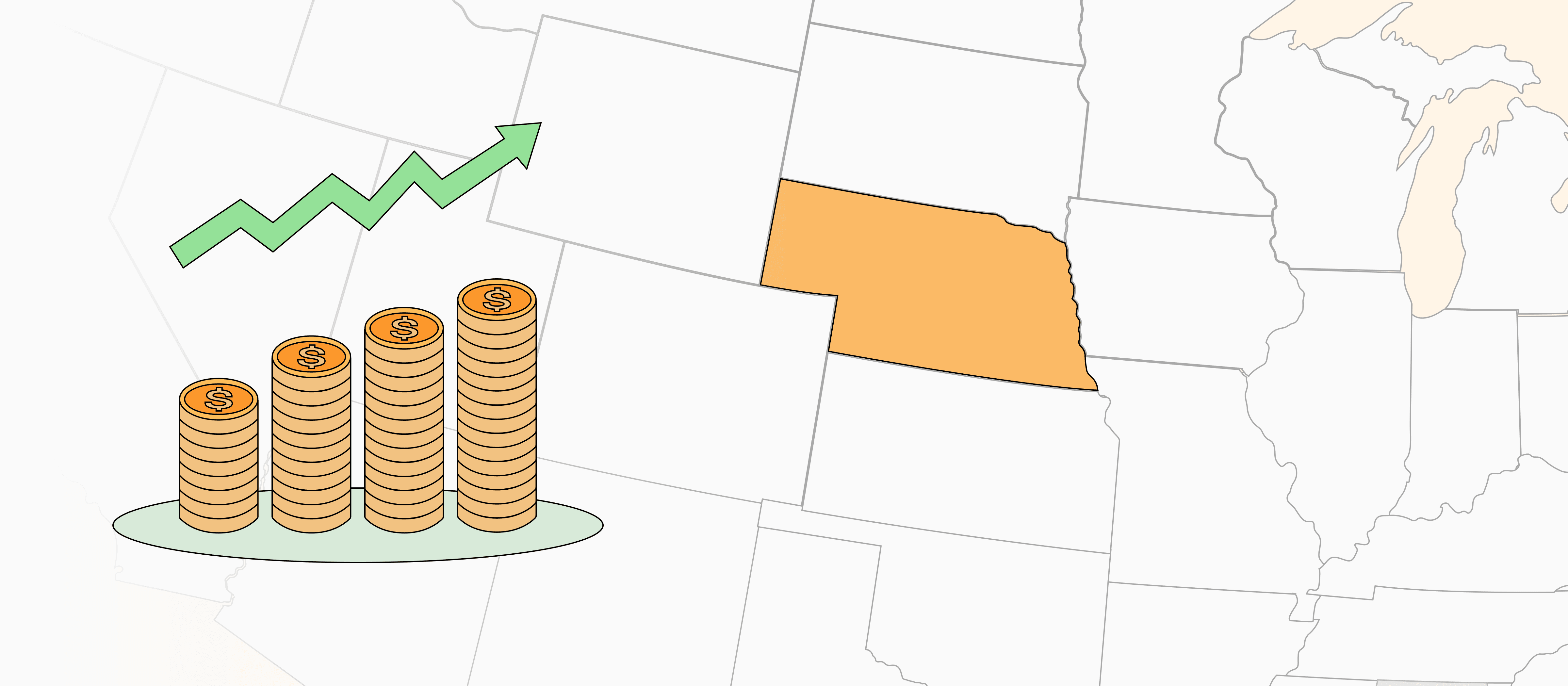| Rent Increase Facts | Answer |
| Reason Needed? | No |
| Maximum Amount | None |
| Required Notice | 7, 30, or 60 Days |
Does Nebraska Have Rent Control Laws?
Nebraska does not have rent control laws limiting the amount that landlords request for rent. State law does allow local governments to set their own rent control ordinances.
When Can a Landlord Raise Rent in Nebraska?
Landlords in Nebraska can raise the rent at any time, as long as they comply with the following:
- Give reasonable notice
- Aren’t raising rent for discriminatory or retaliatory reasons
- Wait until the end of the lease term (unless otherwise specified in the lease)
30 days before the end of a month-to-month lease, a landlord sends the tenant a notice that rent will increase by 5.5% if they choose to renew the lease.
When Can’t a Landlord Raise Rent in Nebraska?
Landlords in Nebraska may not raise the rent if:
- It is during the middle of a lease’s fixed term (unless stated otherwise in the lease agreement)
- It is done in retaliation against a protected tenant action, such as filing a complaint
- The increase is applied in a way that discriminates against one of the protected classes specified in the Fair Housing Act
How Often Can Rent Be Increased in Nebraska?
Landlords in Nebraska can increase the rent as often as they choose as long as they provide sufficient notice each time.
How Much Notice is Needed to Raise Rent in Nebraska?
In Nebraska, landlords cannot raise the rent during a lease term and must give notice as follows:
- Week-to-week tenants – 7 days’ notice
- Month-to-month tenants – 30 days’ notice
- Mobile home tenants – 60 days’ notice
How Much Can a Landlord Raise Rent in Nebraska?
Nebraska landlords can raise the rent by any amount. There is no legal limit or cap on the amount of a rent increase.
Sources
- 1 Neb. Rev. Stat. §§ 76-1439(1)
-
Except as provided in this section, a landlord may not retaliate by increasing rent or decreasing services or by bringing or threatening to bring an action for possession after:
(a) The tenant has complained to a government agency charged with responsibility for enforcement of a minimum building or housing code of a violation applicable to the premises materially affecting health and safety; or
(b) The tenant has organized or become a member of a tenants’ union or similar organization.
Source Link - 2 Neb. Rev. Stat. §§ 76-1437
-
(1) The landlord or the tenant may terminate a week-to-week tenancy by a written notice given to the other at least seven days prior to the termination date specified in the notice.
(2) The landlord or the tenant may terminate a month-to-month tenancy by a written notice given to the other at least thirty days prior to the periodic rental date specified in the notice.
(3) If the tenant remains in possession without the landlord’s consent after expiration of the term of the rental agreement or its termination, the landlord may bring an action for possession and if the tenant’s holdover is willful and not in good faith the landlord, in addition, may recover an amount not more than three months’ periodic rent or threefold the actual damages sustained by him, whichever is greater, and reasonable attorney’s fees. If the landlord consents to the tenant’s continued occupancy, subsection (4) of section 76-1414 applies.
Source Link - 3 Neb. Rev. Stat. §§ 76-1490
-
Each tenant shall be notified in writing of any rent increase by actual notice or by United States mail at least sixty days prior to the effective date of the increase.
Source Link

